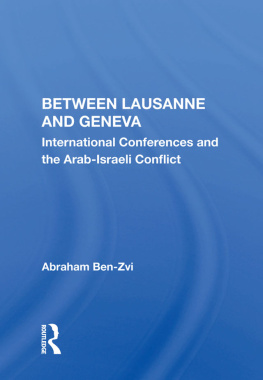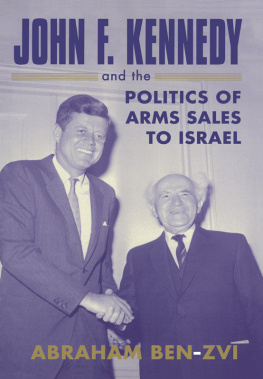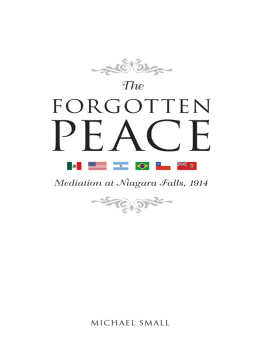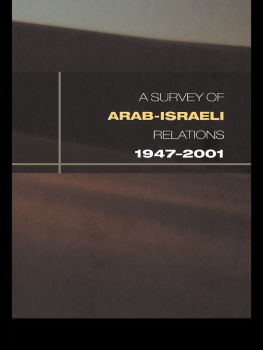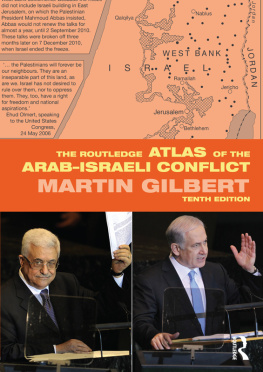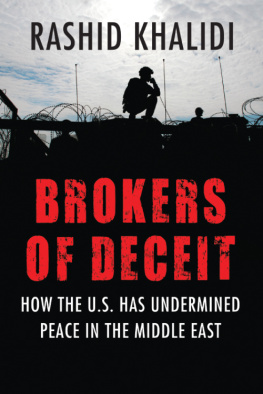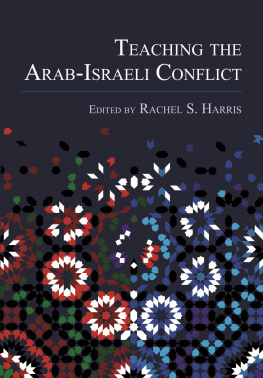BETWEEN LAUSANNE AND GENEVA
International Conferences and the Arab-Israeli Conflict
JCSS Study No. 13
Between Lausanne and Geneva
International Conferences and the Arab-Israeli Conflict
Abraham Ben-Zvi
First publishing 1989 by Westview Press, Inc.
Published 2018 by Routledge
52 Vanderbilt Avenue, New York, NY 10017
2 Park Square, Milton Park, Abingdon, Oxon OX14 4RN
Routledge is an imprint of the Taylor & Francis Group, an informa business
Copyright 1989 by Tel Aviv University, Jaffee Center for Strategic Studies
All rights reserved. No part of this book may be reprinted or reproduced or utilised in any form or by any electronic, mechanical, or other means, now known or hereafter invented, including photocopying and recording, or in any information storage or retrieval system, without permission in writing from the publishers.
Notice:
Product or corporate names may be trademarks or registered trademarks, and are used only for identification and explanation without intent to infringe.
Library of Congress Cataloging-in-Publication Data
Ben-Zvi, Abraham.
Between Lausanne and Geneva : international conferences and the Arab-Israeli conflict / by Abraham Ben-Zvi.
p. cm.(Publications of the Jaffee Center for Strategic Studies, Tel Aviv University)
ISBN 0-8133-0957-3 (U.S.)
1. Jewish-Arab relations1973- . I. Title. II. Title: International conferences and the Arab-Israeli conflict. III. Series.
DS119.7.B38359 1990
956.05'2dc20
89-34806
CIP
ISBN 13: 978-0-367-00367-8(hbk)
ISBN 13: 978-9-653-56010-9 (Israel)
I wish to thank Professor Richard Ned Lebow, Director of the Peace Studies Program, Cornell University, for inviting me to spend the spring 1988 semester at Cornell and for the assistance he provided in researching and writing this book. The highly stimulating framework of the Peace Studies Program was a source of continuous inspiration and guidance for which I am most grateful. I am also indebted to Elaine Scott and Christine Hammon of the Peace Studies Program for their dedicated and thoroughly professional work on all the technical aspects of the manuscript. An earlier and quite condensed version of this study was composed (in Hebrew) under the auspices of the Jaffee Center for Strategic Studies, Tel-Aviv University. I wish to thank my colleagues at the Center, and in particular Head of Center Aharon Yariv, Deputy Head of Center Joseph Alpher, Aharon Klieman and Ariel Levile for their thoughtful suggestions and comments. Joseph Alpher edited the work in a most professional, highly knowledgeable fashion. Dalya Tal, the librarian of the Moshe Dayan Center for Middle Eastern and African Studies at Tel-Aviv University, Heda Rechnitz-Kijner of the Project on US Foreign and Security Policy in the Middle East at the Jaffee Center, and Alexandra Szilvassy, the librarian of the Jaffee Center, all provided invaluable technical and bibliographical assistance.
A highly intensive debate has divided the Israeli government of national unity since 1985 regarding the advantages and dangers inherent in the convening of an international conference. Against this backdrop, and in an effort to resolve at least one facet of the Arab-Israel predicament, this work seeks to analyze systematically the concept of an international conference as referred to by the major parties involved directly or indirectly in the dispute. Focusing on the positions held since 1949 by Jordan, the PLO, Syria, Egypt, Israel, the United States and the Soviet Union, it demonstrates that the various regional and global parties have adhered to fundamentally different visions and definitions of the conference they sought to promote. On the one hand, the maximalist type views the plenary as a powerful and authoritative organ capable of interfering in the work of the bilateral subcommittees and of vetoing bilateral agreements. On the other, the minimalist variant envisages the plenary as but a formal cover or springboard for direct bilateral negotiation, one that is deprived of any coercive or veto power.
One major conclusion that emerges from the discussion is that, in the course of the last four decades, the restrictive type of conference has proved to be more effective in resolving or at least stabilizing certain elements of the conflict. In comparison, all peace conferences and initiatives that were predicated on the maximalist model proved abortive.
In recent years the Israeli and American public arenas have witnessed an incessant debate over the extent to which an international conference could set in motion an effective process of regional accommodation. The central objective of this study is to elucidate the positions of the major involved parties on this issue, as they have evolved since late 1984, and the various patterns by which such an international conference could be implemented.
On the regional level, the work will focus on the perceptions and preferences of Jordan, the PLO, Syria, Egypt, and Israel. These in large part were shaped in the wake of King Hussein's initiative of February 1985 the trigger event that precipitated the entire diplomatic drive. On the global level, the analysis will concentrate on the positions of the two superpowers. On both levels, this reconstruction of images and policies will seek to identify not only the predispositions that determined the parties' initial peace strategies, but also the possible impact of the operational, external environment in modifying at least some of their initial tactics and strategies. Ultimately we shall inquire to what extent the players in the unfolding drama were prepared to set aside, adjust or even abandon their preliminary views regarding the desired procedures and mechanisms for defusing the protracted Arab-Israel predicament, in light of changing circumstances and opportunities for accelerating the peacemaking process.
Our analysis will focus primarily on the positions articulated in the course of the period 1985-1988. But it will also allude to and assess several earlier initiatives to mitigate the Arab-Israel dispute through the convocation of an international conference. On occasion, multilateral efforts will be juxtaposed with less ambitious trilateral processes and initiatives. Particular emphasis in this respect will be placed upon President Carter's ill-fated attempt in 1977 to convene the Geneva Peace Conference on the Middle East. In view of the basic continuity and compatibility between the initial positions taken by some of the actors (such as Syria and the PLO) in the 1977 episode and earlier, and those of the 1985 initiative, such a juxtaposition is essential for identifying the longstanding parameters that consistently delimited margins of deviation. In cases, such as that of the US, where a more significant change in the basic approach toward the idea of an international conference appears to have taken place over the years, this comparative perspective may prove useful for distinguishing between certain competing, and occasionally incompatible foreign policy orientations, from which divergent peace strategies were delineated.
The issue of the international conference has precipitated a welter of public statements since it surfaced with much saliency in 1985 as a concrete option. Yet an examination of the various facets of the question confronts the observer with several clusters of difficulties.

